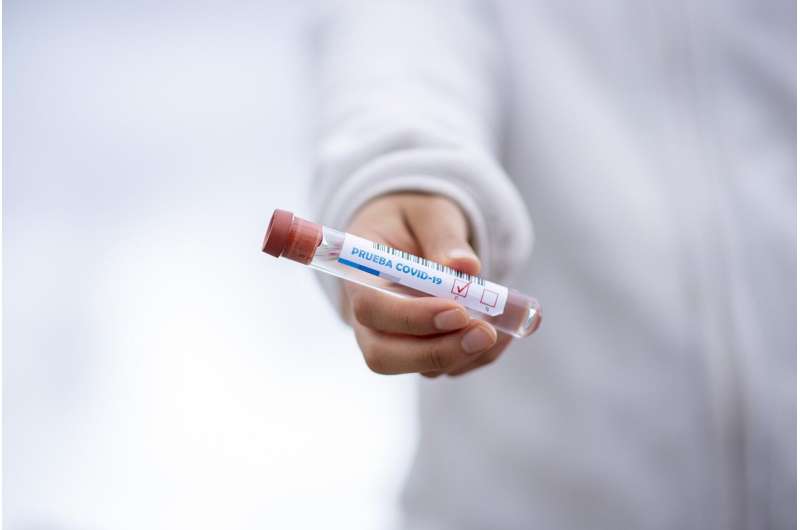This article has been reviewed according to Science X's editorial process and policies. Editors have highlighted the following attributes while ensuring the content's credibility:
fact-checked
peer-reviewed publication
reputable news agency
proofread
First genetic clue why some people do not get sick from COVID

People who have a particular genetic variant are twice as likely to never get sick when they contract COVID-19, researchers said on Wednesday, offering the first potential explanation for the lucky group dubbed the "super dodgers".
Those who have two copies of the variant are eight times more likely to never get any symptoms from COVID, according to the study in the journal Nature.
Previous research has suggested that at least 20 percent of the millions of COVID infections during the pandemic were asymptomatic.
To find out what could be behind these cases, researchers took advantage of a database of volunteer bone marrow donors in the United States.
The database included each person's type of human leukocyte antigen (HLA), which are molecules on the surface of most cells in the body.
The immune system uses HLA to see which cells belong in the body, and they are thought to play a key role in the response to viral infections.
The researchers had nearly 30,000 people on the bone marrow registry self-report their COVID tests and symptoms on a mobile phone app.
More than 1,400 unvaccinated people tested positive for COVID between February 2020 and late April 2021, the study said.
Out of that group, 136 saw no COVID symptoms two weeks before and after testing positive.
One in five of that group carried at least one copy of an HLA variant called HLA-B*15:01.
Those fortunate enough to have two copies of the gene—one from their mother, one from their father—were over eight times more likely to be asymptomatic from COVID than other people, the study said.
'Armed and ready for attack'
To find out why this was the case, the team carried out separate research looking at T cells, which protect the body from infections, in people who carried the variant.
The researchers specifically looked at how T cells remembered viruses they had previously encountered.
This meant they were "armed and ready for attack when they encounter the same pathogen again", Jill Hollenbach of the University of California, San Francisco and the study's lead researcher told AFP.
When people with the HLA variant were exposed to the COVID virus, their T cells were particularly primed for battle because they remembered similar cold viruses they had previously fended off.
This theory—that recent exposure to colds and other coronaviruses could led to fewer COVID symptoms—has previously been proposed to explain why children have often been spared the worst of COVID.
"Anyone that has ever been a parent knows that kids are snotty-nosed for five or six years, so I think that's a really reasonable thing to speculate might be happening," Hollenbach said.
She said the HLA variant was likely just one piece of the genetic puzzle behind asymptomatic COVID.
But the researchers hope that studying the immune response to COVID could lead to new treatments or vaccines in the future.
Hollenbach said one interesting idea was a vaccine that prevents COVID symptoms—rather than infection—which could potentially last longer than the currently available jabs.
The researchers warned that most of the study's participants were white, which could limit the findings for other groups, and that it covered an earlier period of the pandemic and did not include re-infections.
More information: Jill Hollenbach, A common allele of HLA is associated with asymptomatic SARS-CoV-2 infection, Nature (2023). DOI: 10.1038/s41586-023-06331-x. www.nature.com/articles/s41586-023-06331-x
Journal information: Nature
© 2023 AFP




















